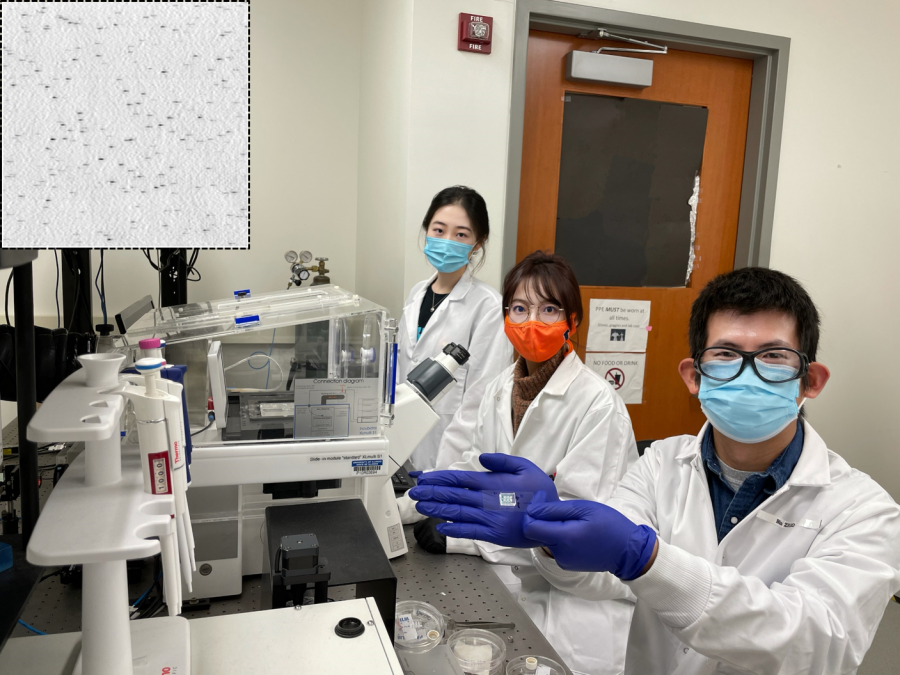UI research team creates COVID-19 antibody test
Photo Courtesy of Bin Zhao and Brian Cunningham
COVID-19 antibody test researchers present a 10x13mm assay chip and their PRAM instrument. In the top left corner, a PRAM image shows COVID-19 antibody molecules represented by black dots.
February 4, 2021
COVID-19 vaccines are currently being administered to eligible groups but patients may want to monitor how their immune system reacts to these vaccines — and a new COVID-19 antibody test may be able to help.
Holonyak Micro & Nanotechnology Lab students on campus — Weijing Wang, Nantao Li and Congnyu Che — as well as Postdoctoral Researcher Bin Zhao and Professor Brian Cunningham are the lab team responsible for this effective COVID-19 antibody test.
“Antibodies are the molecules that are developed by your immune system when it’s exposed to a new threat such as a virus,” Cunningham said.
There are people who have been exposed to COVID-19 but have little to no symptoms present and as a result, never received official tests. Those individuals can take an antibody test and find out if they had any COVID-19 antibodies in the past, which could reflect their immune system’s response to the vaccine in the future.
“We’re not trying to detect the virus or to determine whether you have it, but the test could measure whether you had COVID-19 in the past by the presence of antibodies or whether their immune system could develop a strong immune response to vaccines,” Cunningham said.
Get The Daily Illini in your inbox!
The research group was originally working on a project funded by the National Science Foundation to develop a flu chip that would detect molecules in blood to determine the source of the illness.
“We actually began our efforts last March once the pandemic hit because we were working on another project previously,” said Postdoctoral Researcher Bin Zhao. “We thought to use our research and create a highly sensitive procedure that would detect the COVID-19 antibodies in the serum sample.”
This development has allowed the research team to further analyze other illnesses using similar procedures in order to detect symptoms and potentially diagnose patients in the future.
“I think for the future we will be working on a procedure to detect both influenza and COVID-19. So if a person has a fever, hopefully in the future we can have a test that can distinguish whether this patient is actually having the flu or if they have COVID-19,” said Weijing Wang, a Bioengineering and Holonyak Lab graduate student.
The research team is working with a few companies that are interested in using this test as a diagnostic method. The group still needs more resource investments and FDA approval before they move forward and turn it into a commercial product.







